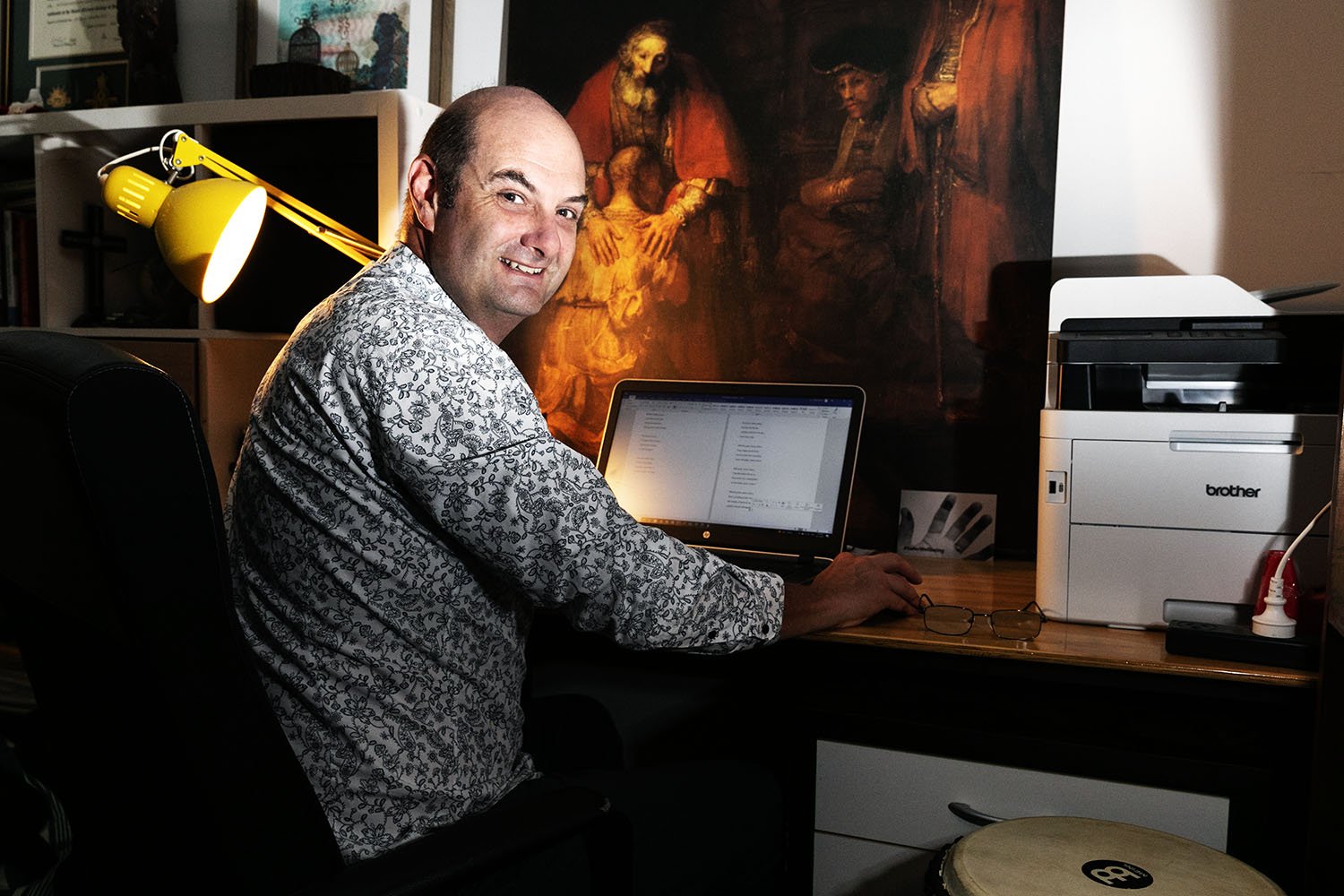Haydn Parsons
Army, Poet - Author
Haydn began his working life as a fitter and machinist. At the same time, he completed a Bachelor of Theology and a Master of Arts, and became an ordained minister in the Churches of Christ in 2006.
Shortly after, Haydn was attending a church ministers’ forum, where he sat next to an army Chaplain. Striking up a conversation, it later developed into a firm friendship. The life of a Chaplain piqued Haydn’s interest and he began investigating it for himself.
“You’ll need to shave off that beard and lose some weight, for a start!” his friend said.
Haydn laughs as he remembers thinking, “Cheeky fellow!”
However, he did just that and, after a lengthy recruitment process, was accepted to work part-time as a Chaplain and an Officer in the Army Reserves.
“I thought I’d start gently so I committed to five years. Now, fourteen years down the track, I still enjoy it and love the work - most of the time. It’s challenging, diverse and, at times, a sacrifice. You’re always on call. That’s part of our core value of service. I signed up to serve those who serve our nation. It’s a great honour.”
When Haydn’s civilian life changed and he faced redundancy, he made the decision to become a full-time army Chaplain. This decision had the added benefit of providing stability for his family at a time when his two sons were transitioning from high school. It wasn’t an easy time in his life with himself and his wife, Bronwyn, working four part-time jobs between them. So they made the decision to down-size and simplify their life.
“We just got by. One day I was having a particularly bad day. I was in tears, desperate to find a way forward. I was processing the grief of what I had known and lost. Decisions were out of my control. I was asking God, ‘Well? What’s next?’” he says.
“I started to write down some of my feelings about what I was going through. I was told in school that I was never any good at writing and poetry, so that’s what I believed. And yet, poetry was forming in my mind, and so I posted one of my poems to Facebook. A friend phoned and asked if I was OK. I explained how I was processing my shadow side and not doing well with the changes in my life. He said my writing was beautiful and to keep going. So, every day I would put a few words into a notepad. I’d reflect while I was walking or busy at work. Before I knew it, I had over a hundred short verses. That was the beginning.”
Haydn was deployed to the Solomon Islands in 2012.
“This was a hard time for my sons and my wife. Both boys were having difficulties at school.”
Out of this time of adversity, Haydn developed his approach to difficulties with the acronym S.A.F.E.R. He wanted to give his sons the tools to better themselves, rather than have someone else helping them. Haydn is very quick to point out that he’s not a medical or psychology practitioner, but that these tools are simply his personal approach to wellness and well-being.
“It’s really common sense. But it’s not that common.”
Haydn’s acronym and explanations are as follows:
S - Spirituality. It can mean different things to different people. It could be admiring the sunset, or it could be something religious, but that’s not necessary.
A - Activity. How do people move their body? It’s going to be different for different people, for example dance, martial arts, marathon running, etc.
F - Friendships and Belonging. This is a big one. Do a stocktake. Who are the people in your ‘tribe’? Where do you belong? You may be in a workplace, but these are not necessarily your friends. But, then again, they may be. It’s often our family and yet, your family may not be a safe place. So, how do you find friendship?
E - Eating nutritiously. Cutting back on things you know are bad for you, such as alcohol, processed foods, etc. How do we ensure a balanced diet? How do we measure our energy levels, based on what we put into our bodies? Water? We need to be mindful of this and talk to professionals in this field, if needed.
R - Redevelopment through life-long learning. We are developing the person we are and it’s an ongoing growth. We learn through visual, kinesthetic, aural, etc. We learn through creative ways. But we can also learn through hardship. What lessons can suffering teach us? It takes a lot of courage and some vulnerability.
Based on all his self-reflection on life, Haydn published a book of poetry called Beneath a Sea of Masks in 2020.
“It’s based on my lived experiences. There are twelve different personas in there, from my responses to being on top of the mountain to being in the deepest pit,” Haydn explains.
“The beautiful thing about poetry is that it gives the soul a voice. Often, when I share my poetry, a military veteran will say, ‘Me, too. I’ve felt that.’ At the end of my poetry is the S.A.F.E.R. material that, I hope, may help a reader look after themselves.
“Any of the creative arts offer something tangible to share with others, and to connect. A work colleague called me the Padre Poet. That sounded audacious. For me, poetry is just a way to share my story.”
https://www.thepadrepoet.com/








